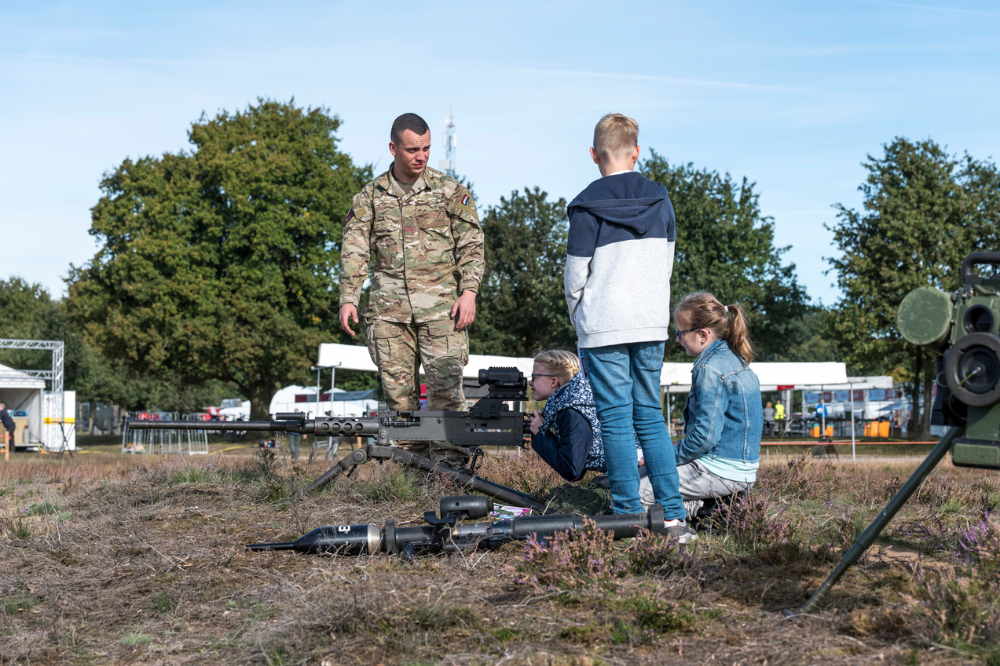
In July, the Canberra Times reported that the ACT Government had rejected Northrop Grumman’s offer to send a Canberra student and teacher to a six-day Space Camp in the US, fearing controversy despite potential “life-changing” benefits.
In a statement, the government said the decision reflects a shift in its stance on defence company engagements, focusing instead on space, cyber security, advanced technology, renewables, and international education.
Previously, Chief Minister Andrew Barr aimed to grow the local defence industry, meeting executives from major weapons manufacturers. Northrop Grumman, a key sponsor, produces drones for the Australian Defence Force, though the Space Camp centred on civil space exploration and educational activities.
Read more: Should STEM providers stop teaming up with weapons manufacturers?
This week, The Educator sat down with Elise West, the director of Teachers For Peace – one of the organisations that lobbied the ACT Government to reject Northrop Grumman’s offer.
West said her organisation wrote a policy brief in July 2023 showing “a systematic breach” of the ACT education department’s sponsorship policy.
“This policy states very clearly that any ‘company or organisation whose name is associated with the manufacture, distribution or sale of...armaments is not regarded as an appropriate sponsor’,” West told The Educator.
“We recommended that the department more closely monitor the involvement of weapons companies in education, and give better advice to schools on selecting third-party programs.”
West pointed out that well before this, in November 2022, the Medical Association for Prevention of War wrote to the education minister alerting her to the issue.
“We’ve just written to the department to welcome the decision on Northrop Grumman, and to ask department officials to apply the policy across the board, to all programs that expose children to harmful industries like the weapons industry,” West said.
“We would also like the ACT education department to alert programs like National Youth Science Forum, FIRST Australia and the Science and Engineering Challenge - who all take money from weapons companies - to a compliance issue in the ACT.”
‘An uphill battle’
West said Teachers For Peace remains focussed on the issue of weapons industry interference in education.
“It’s an uphill battle - we are trying to change some very deeply-held ideas about the role of weapons in human security,” West said. “But we are very pleased to see more people take up the issue in their area, at their school, or in their workplace.”
West noted that a group, ‘No Weapons for Genocide’, has formed in the Hunter region to tackle the Science and Engineering Challenge’s relationship with Lockheed Martin.
“Teachers in Canterbury-Bankstown passed a motion committing to non-participation in programs associated with weapons companies,” she said. “Together with Wage Peace, we’ve engaged with young people through Edmund Rice Education Australia.”
Read more: Government’s STEM focus turns to AUKUS, and peace advocates are worried
West said questions have been asked in the Victorian Parliament, and teachers in Victoria have passed motions in multiple regions and launched their own campaign.
“The Women’s International League for Peace and Freedom has recently written to the Prime Minister on the issue,” she said. “And of course, over the past months university students around the country and the world have revealed and challenged higher education’s entanglement with the weapons industry.”
A world on the brink
With the Middle East on the brink of erupting into a full-scale regional war following unprecedented escalations over the past week, West says it is time to focus on approaches that alleviate rather than exacerbate the causes of conflict.
“It’s true that our world faces some serious crises, most of them produced by human actions that have served the interests of the few and not the many,” West said.
“I think great danger stems from our over-reliance on militaristic solutions to collective problems, and a narrow focus on state rather than human security – this actually just compounds our problems.”
West said nations are investing in more missiles, bigger armies, AI-weapons, nuclear weapons, weapons under the sea, and even weapons in space.
“Meanwhile, non-military approaches to collective human security – approaches that can actually address the underlying causes of conflict – are devalued.”
Promoting peaceful pathways to peace
Currently, many students will only learn about peace by studying war, said West.
“Students are studying peace as a product of war, and something that must be gained and constantly defended through military might,” she said.
“We would like to see more critical and expansive engagement with peaceful pathways to peace.
More specifically, West said the Australian government should engage with the updated UNESCO recommendation on Education for Peace, Human Rights and Sustainable Development.”
“The recommendation proposes that the principal purpose of education is to equip learners to understand and assume their responsibility to prevent war and violence, uphold the dignity and rights of all people, and to demand peace at home and in the world.”


